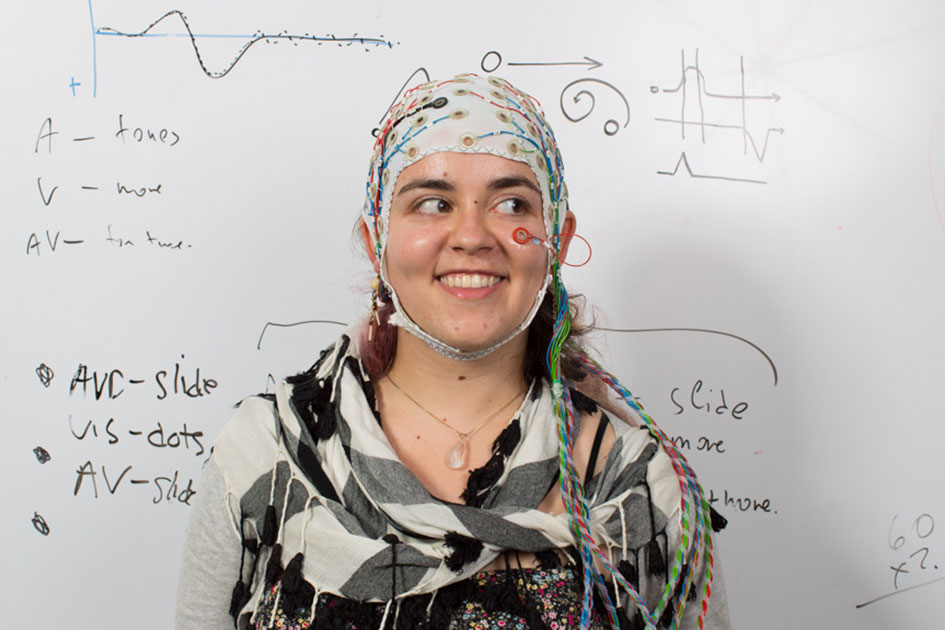Reed Launches Neuroscience Major
Students will get full immersion in an emerging science.
Starting this semester, Reed is offering a major in neuroscience, making it the first college in Portland—and one of very few in the Pacific Northwest—to provide undergrads with a full immersion in the field.
Neuroscience is sometimes considered a specialized area, better pursued by graduate students at big R1 research institutions. But recent developments in technology have put powerful research tools within the reach of undergraduate colleges. At the same time, researchers are coming to understand that success in neuroscience requires skills that are the hallmark of a liberal-arts education: critical thinking, creativity, and teamwork.
“The neuroscience major harnesses existing strengths to everyone’s benefit,” says Prof. Nigel Nicholson [classics 1995–], dean of the faculty. “It recognizes the innovative work being done in the field by Reed faculty members in the biology and psychology departments, builds on the excellent working relationship between the two departments, and responds to growing student interest in this important area.”
Reed has offered advanced courses and rigorous training in neuroscience for many years. But until now, students never had the opportunity to form a cohesive cohort and declare a major in the field.
“We’re really excited,” says Prof. Paul Currie [psychology 2007–], one of the driving forces behind the initiative.
The new major boasts an imposing set of requirements. Students will take at least five units in biology, five in psychology, two in math, two in chemistry, and two more in either chemistry or physics. They also have to pass a junior qual in both biology and psychology, write a senior thesis, and complete all the other coursework required of Reed students.
The decision is the product of two complementary forces. First, the faculty have developed an outstanding expertise in neuroscience, specializing in topics such as the genomic basis of behavior, the mindbending world of sensory substitution, and the “hunger hormone.”
But perhaps more important, Reed students have demonstrated extraordinary interest in neuroscience. Over the last decade, they have authored dozens of papers in prominent journals.
In fact, the impetus for this neuroscience major was a grassroots effort initiated by student leaders Leah Cepko ’16 and Anna Fimmel ’14, who asked the faculty to establish a program in 2012. “They were tremendously enthusiastic,” says Prof. Suzy Renn [biology 2006–], who was instrumental in creating the new program. “That really sparked the discussion."
For more details—including neuroscience faculty, innovative student research and prominent Reed neuroscientists—check out the Neuroscience website.
Tags: Professors, Editor's Picks, Academics, Institutional, Research
